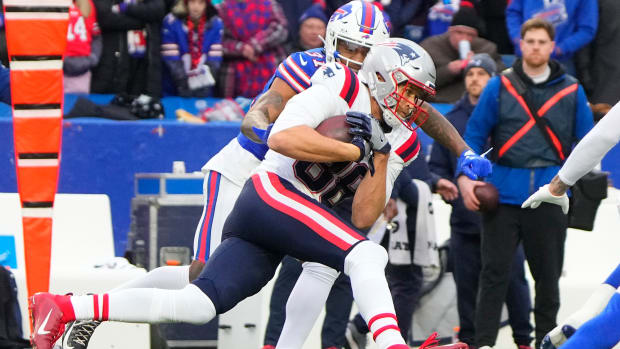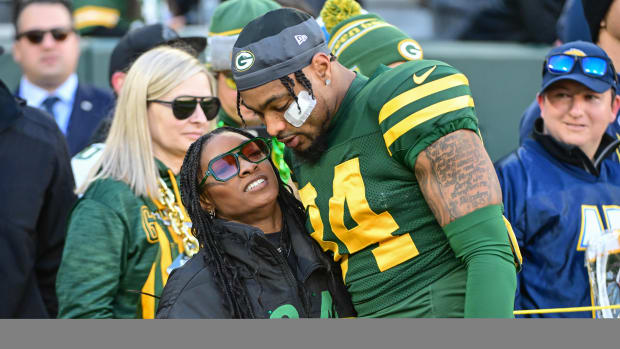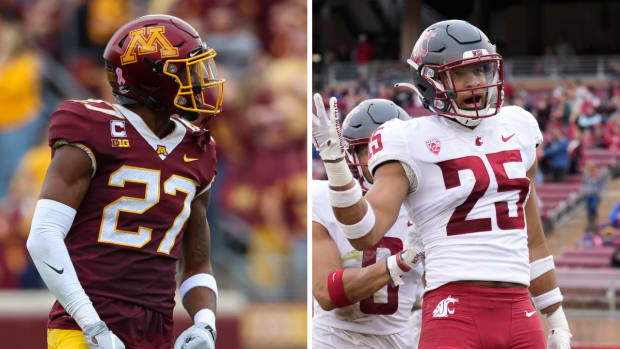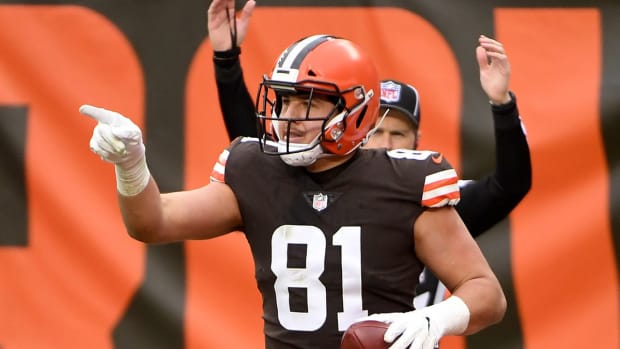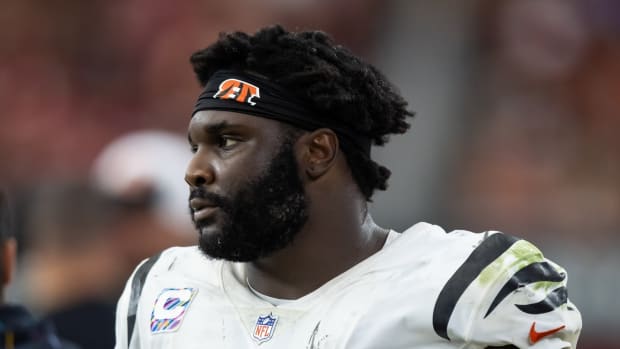It’s More Than Fair to Start Pointing a Finger at Russell Wilson
Whether or not Russell Wilson saw it this way, a trade from Seattle to anywhere else was always going to be the biggest risk of his career. How lucky we would all be, if taking a massive leap of faith in our personal lives could also come with $124 million in guaranteed money.
But if narrative control is of any interest to Wilson, these are dire times. The Broncos have averaged 15 points in their first five games and have not topped 23. Their loss to the Colts in overtime Thursday night was so bad that Kirk Herbstreit called the totality of their offensive performance “horrible” during the broadcast. Thus far, most of the weight has been shouldered by Denver’s new coach, Nathaniel Hackett, with consistent references to time management hiccups and myriad cutaway shots of the team’s new coaching assistant who was brought in to help with those matters.
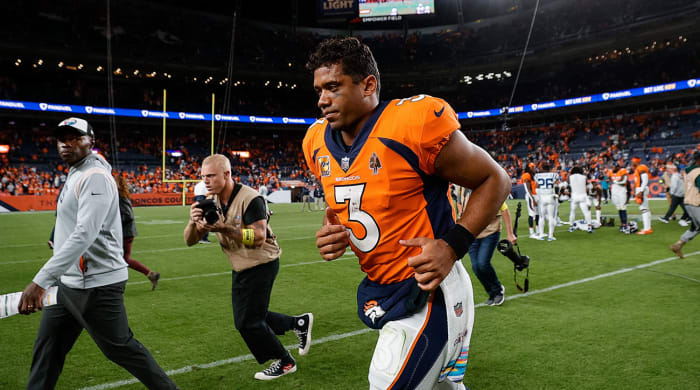
Wilson leaves the field after the Broncos drop to 2–3 in his first season with Denver.
Isaiah J. Downing/USA TODAY Sports
At some point, will the finger eventually shift to Wilson, who, in Denver, looks like the most pedestrian version of what he was in Seattle? His backfield theatrics, which we celebrated widely as a football viewing public (and as a print magazine) are half-speed now, or have disappeared altogether. On his attempt at a game-winning touchdown throw on Thursday, he had ample time to sit in the pocket and ignore an open receiver to his right, while locking on the receiver who was being guarded by one of the craftiest veteran cornerbacks in football (Stefon Gilmore, who had picked off Wilson in the red zone just minutes beforehand). That is unforgivable for a veteran quarterback with a decade of experience and perhaps telling as to why his coach may have been favoring long field goals during critical situations in the first place.
In Seattle, Wilson was always comfortably sheltered by the idea that Pete Carroll liked to run the ball and that this infatuation somehow robbed Wilson of more opportunities to be a spectacular player. His lack of MVP votes—let alone actual awards—became a rallying cry, which many of us (raises hand) parroted without a second thought. It was easier to believe an old-school septuagenarian was holding Wilson back than to believe Wilson may have had some limitations as a player that were actually covered up well schematically and buoyed by all of the “lifeline” maneuvers the Seahawks made, seemingly to pacify him, like the acquisition of Duane Brown and the hiring of Shane Waldron from the Sean McVay tree.
Watch the Broncos with fuboTV. Start your free trial today.
Take your pick of journalistic exposés on that era of Seattle football, of which there were plenty. We were all tickled by the idea of Wilson being “freed” in Denver by a system that revamped Aaron Rodgers’s career and saved Ryan Tannehill’s alike, simultaneously ignoring what a sizable number of anonymous teammates, coaches and personnel folks had been trying to tell us for years: Wilson is not blameless here. He may not be the conveniently sympathetic figure we all made him out to be.
There is a long way to go in the 2022 season, and we’re not (yet) glancing at a Wilson-less Seahawks team for clues as to how Geno Smith can help put up 48 points in one game, when Wilson seems to take about a month to do so. We are not ready to declare Carroll victorious in the court of public opinion or offer up some kind of hazard pay for Marshawn Lynch and the Legion of Boom. But we are going to start broadening the narrative beyond “his coach is bad” and wondering whether the push to get him in Denver was spearheaded by some of the same smoke and mirrors that led us to this place of utter disappointment Thursday.
At this point, there are two distinct possibilities:
One is that Wilson really is miscoached. That both Carroll and Hackett have, to some degree, failed him or are failing him now.
The other is that Wilson may have artfully underperformed with one of the best supporting casts in recent NFL history in Seattle, and is now doing so again in Denver, where, despite some critical injuries on offense, there is still a perfectly suitable offensive line and a set of skill-position players preferable to many other teams in the NFL.
After Thursday night, there are fewer people believing the former. Wilson should have known this could happen once he left the Pacific Northwest. Now, finally, it is up to him and him alone to show us what the truth is, and maybe even has been all along.
More NFL Coverage:


































